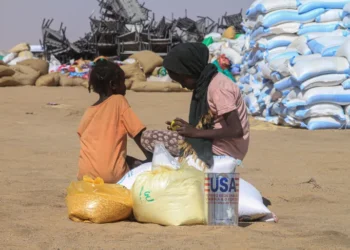As global temperatures continue their relentless rise, the World Health Organization (WHO) has declared that climate change is now a direct threat to public health. Confirming 2024 as the hottest year ever recorded, the WHO emphasized that the climate emergency is “also a health crisis – and it’s already claiming lives.”
Europe, in particular, is warming at a pace unmatched by any other WHO region. This rapid increase in heat has brought devastating consequences for the health and well-being of people across the continent. Rising death tolls, the spread of climate-induced illnesses, and mounting psychological stress are just some of the worsening impacts.
In response to the growing crisis, WHO and Europe have launched the Pan-European Commission on Climate and Health (PECCH) – a high-level initiative aimed at countering the escalating health threats caused by climate change. The commission is chaired by former Prime Minister of Iceland, Katrín Jakobsdóttir, and includes 11 distinguished experts from across Europe. Their mandate is to deliver practical, science-backed recommendations that reduce emissions and protect vulnerable populations.
“The climate crisis is not only an environmental emergency, it is a growing public health challenge,” said Jakobsdóttir.
“We must recognise that the interplay among rising temperatures, air pollution and changing ecosystems resulting from human-induced climate change is already affecting the health and well-being of communities around the European Region and the world.”
Katrín Jakobsdóttir

Statistics from the past two years illustrate the urgency of the situation. Over 100,000 people in 35 European countries lost their lives to extreme heat in 2022 and 2023 alone. The European Region accounts for one-third of all heat-related deaths globally, despite comprising only a fraction of the world’s population.
WHO’s Comprehensive Global Plan
The WHO is preparing to escalate its actions globally with the rollout of its Global Action Plan on Climate Change and Health, set to be adopted at the 78th World Health Assembly in 2025. This initiative will incorporate climate resilience into all WHO operations and foster collaboration between sectors like health, environment, and sustainable development to create long-term protection strategies.
Central to this effort is the Alliance for Transformative Action on Climate and Health (ATACH). Launched to fulfill commitments made at COP26, ATACH now supports more than 80 countries. It provides technical assistance, facilitates collaboration, and enables nations to build climate-resilient and low-carbon health systems. These health systems are expected to lower greenhouse gas emissions while improving infrastructure resilience against extreme weather, disease outbreaks, and food insecurity.
Andrew Haines, chief advisor to the WHO and Europe climate-health programme, underscored the gravity of the threat. “Climate change poses a serious and escalating threat to human health,” he said. From the spread of infectious diseases to worsening air quality, heatstroke, malnutrition, and mental health challenges, the crisis touches nearly every aspect of human well-being.

Global Shift Toward Health-Centered Climate Policy
The WHO’s upcoming General Programme of Work (2025–2028) places climate change and health at the forefront.
The strategy focuses on protecting vulnerable populations, developing sustainable practices, and powering health systems through renewable energy. It also champions cross-sectoral policies that reduce carbon emissions and improve public health across areas like energy, transportation, and food systems.
Additionally, WHO is working directly with member countries to conduct climate-health vulnerability assessments, draft national adaptation plans, and roll out early warning systems for climate-related health threats. These tools aim to provide timely alerts and empower communities to respond proactively.
Community engagement remains a cornerstone of WHO’s approach. Through public awareness campaigns and partnerships with local organizations, the agency seeks to strengthen multisectoral collaboration and maximize the health benefits of climate action.
Ultimately, WHO is pushing for a paradigm shift — placing human health at the center of climate policy. With coordinated global action and sustained investment in resilient healthcare systems, the organization hopes to safeguard populations from the worsening impacts of a warming world.
READ ALSO: Ghana’s Constitution Review Committee Embarks on Nationwide Engagement






















